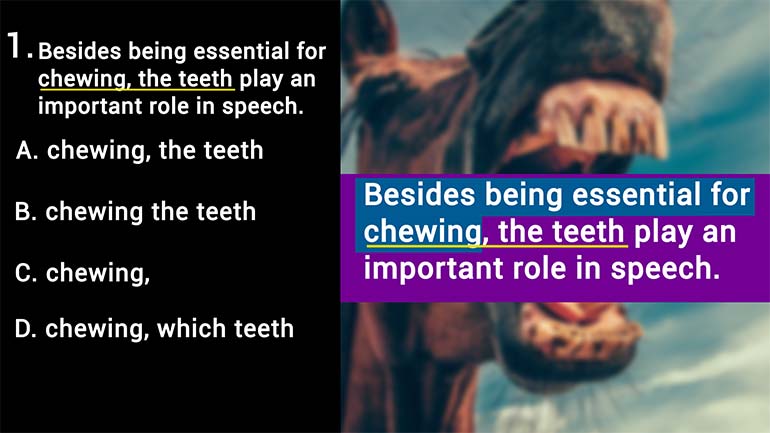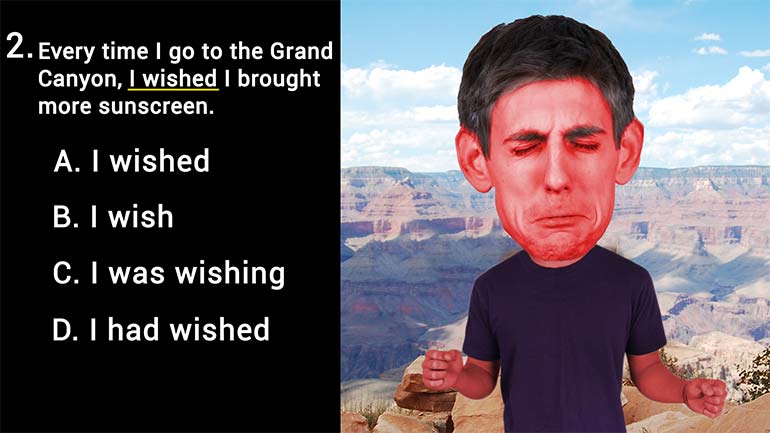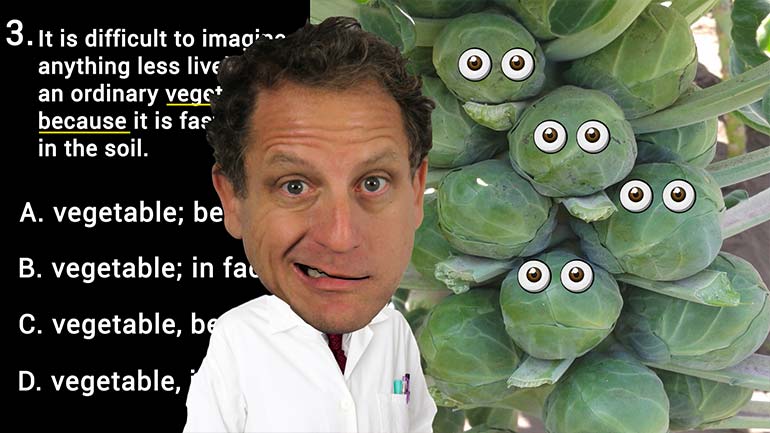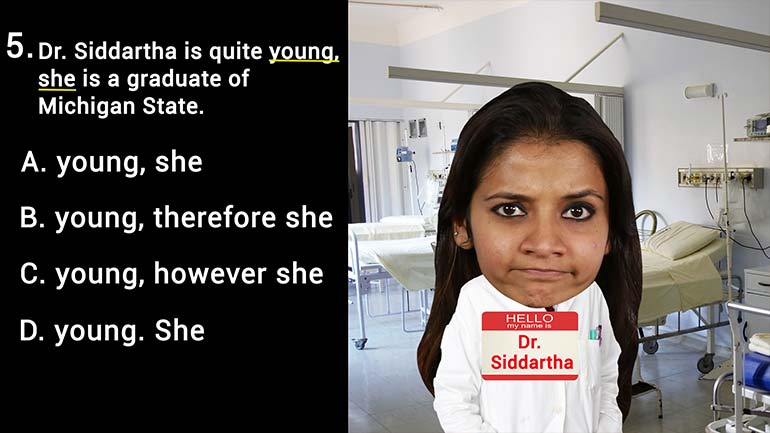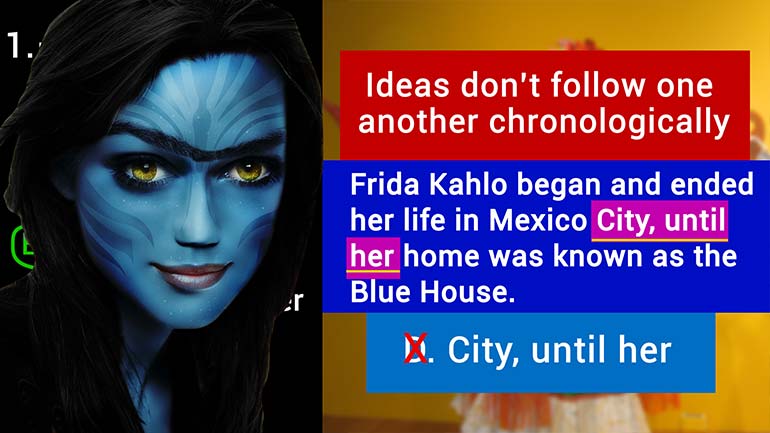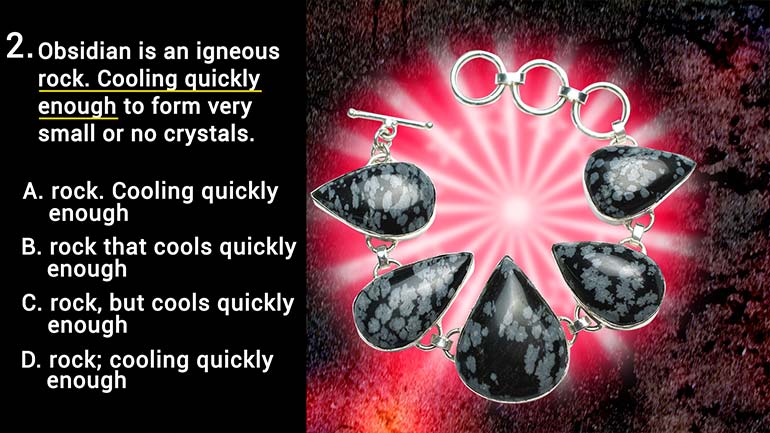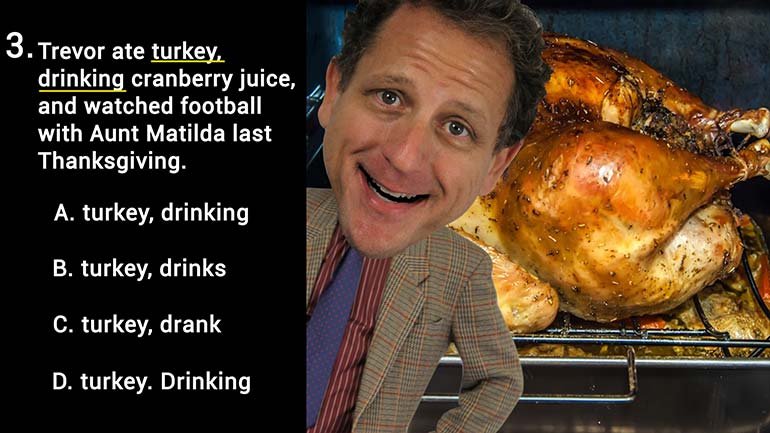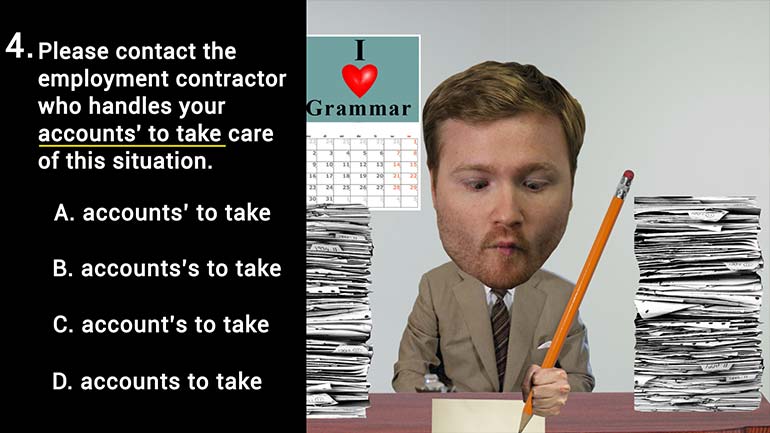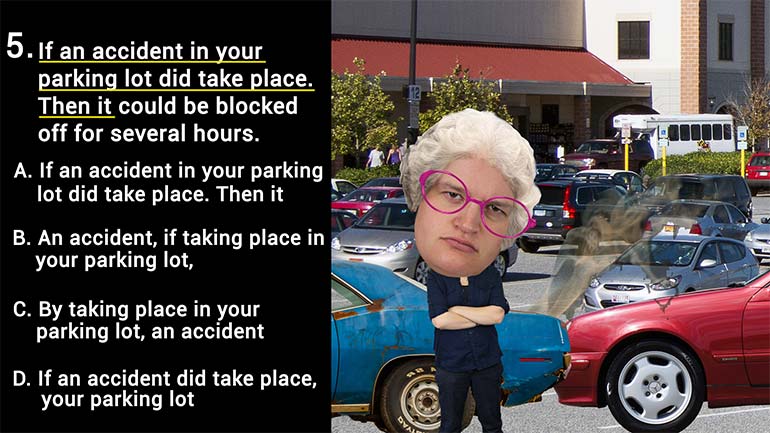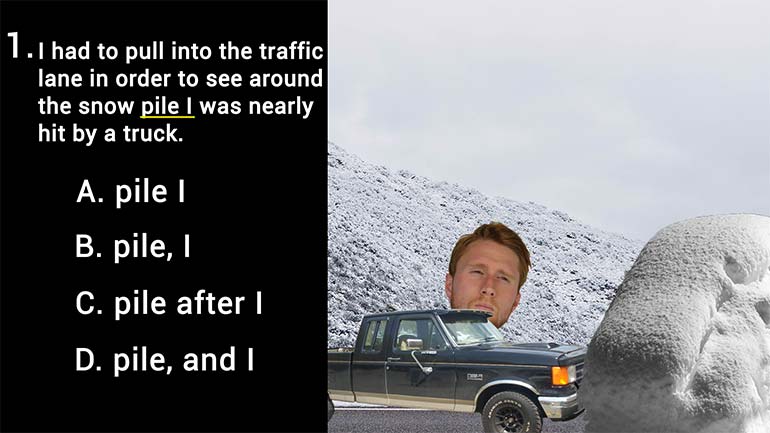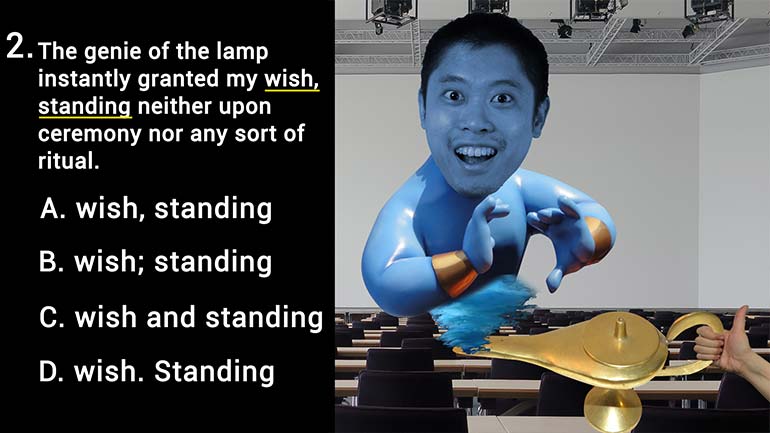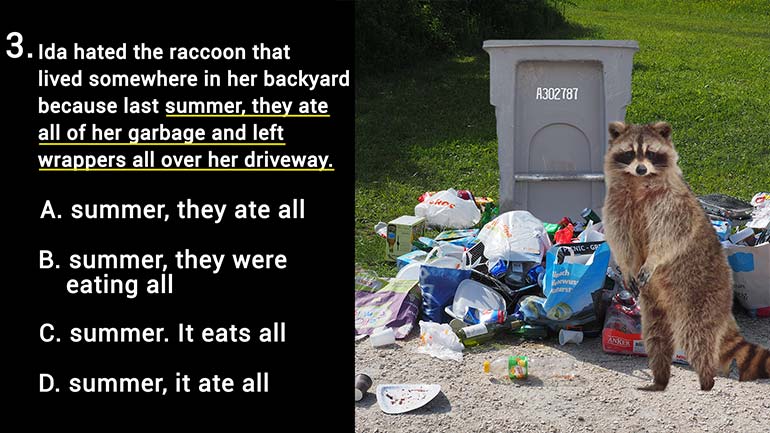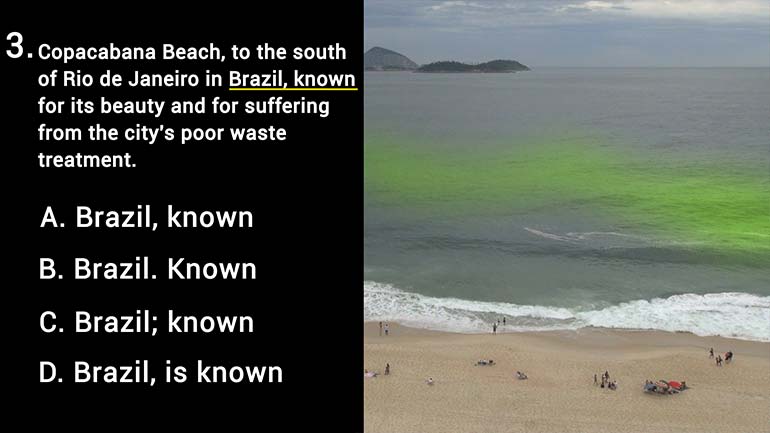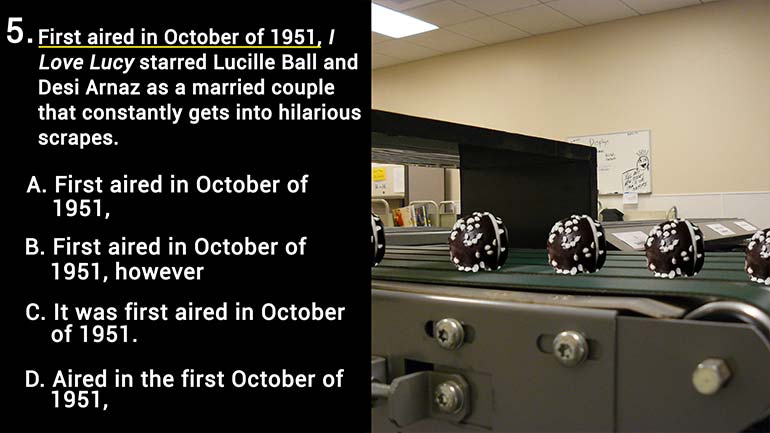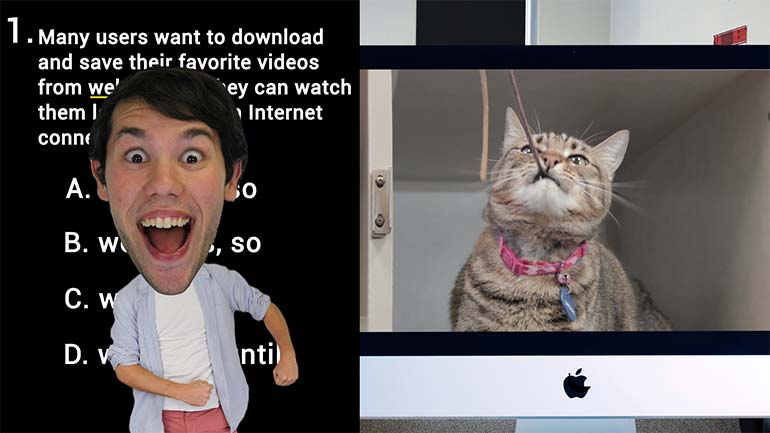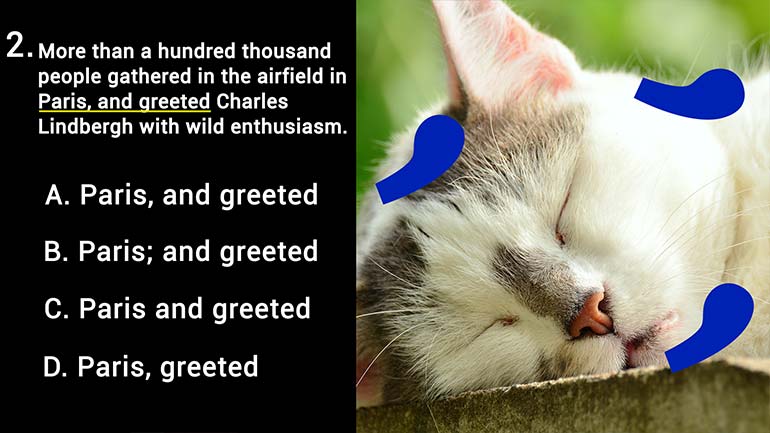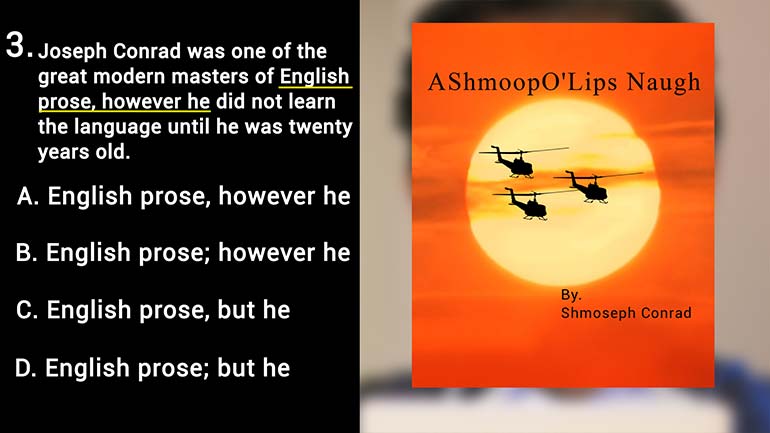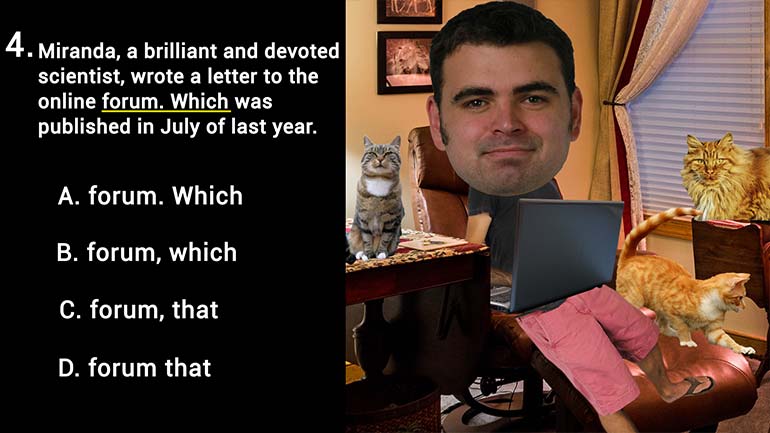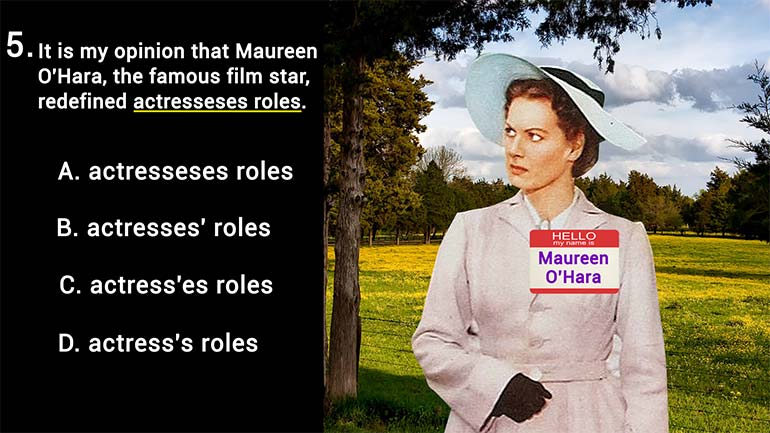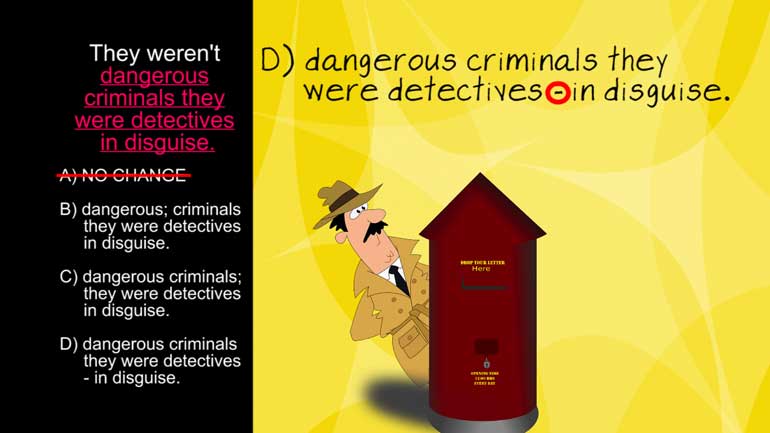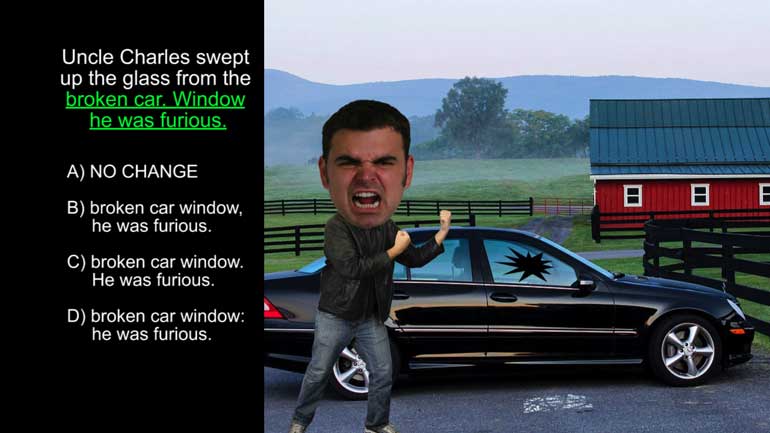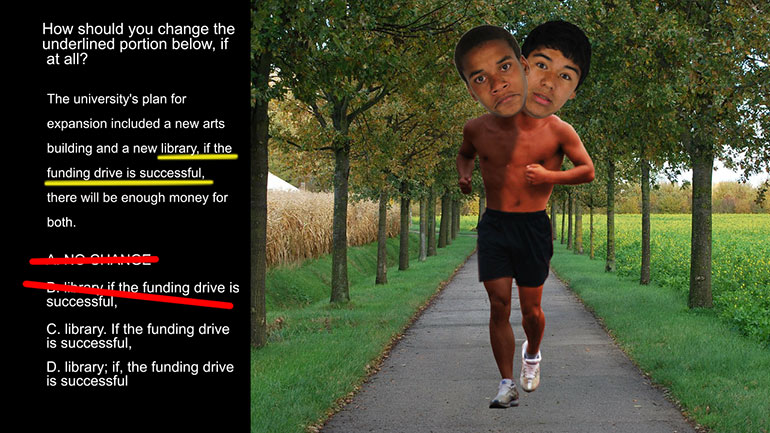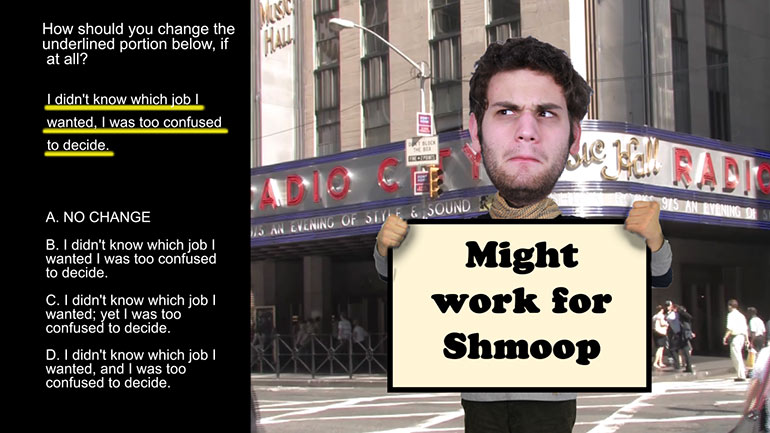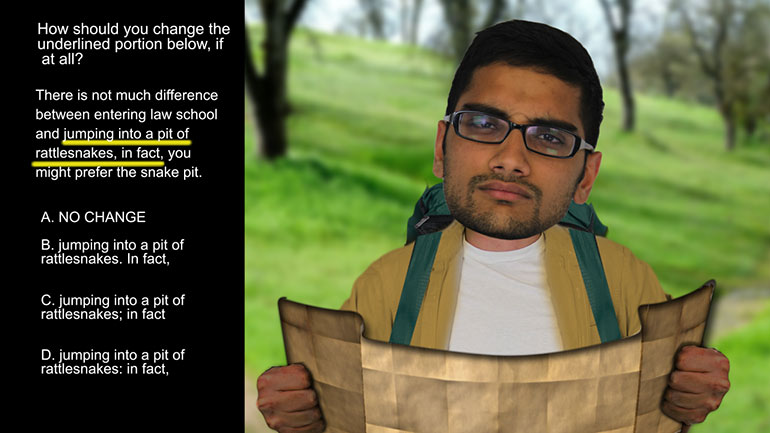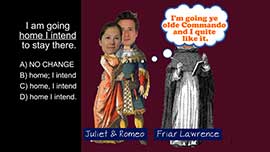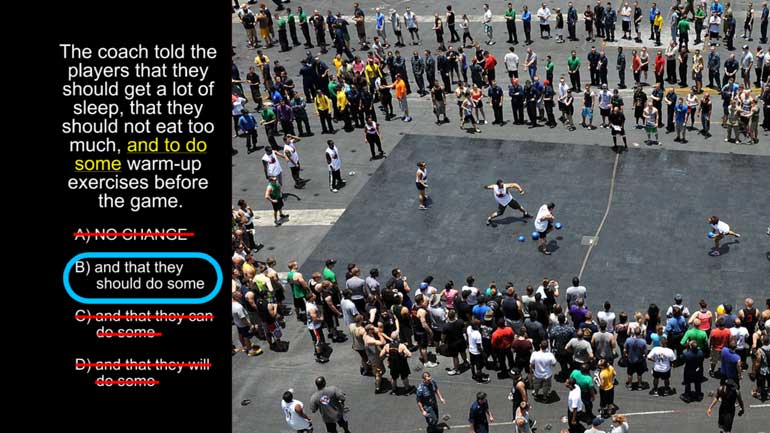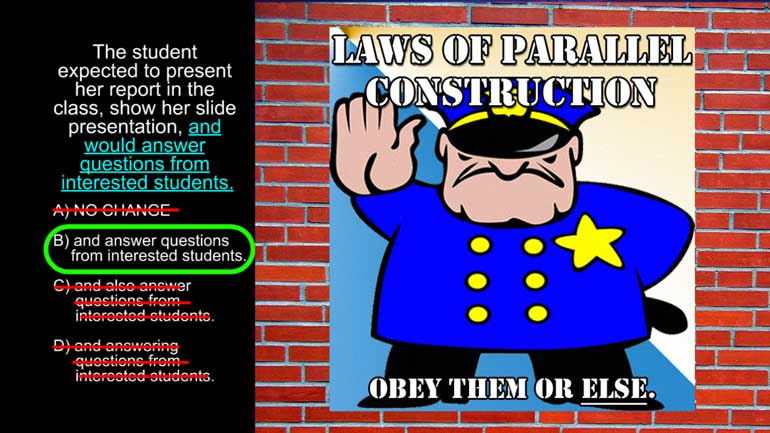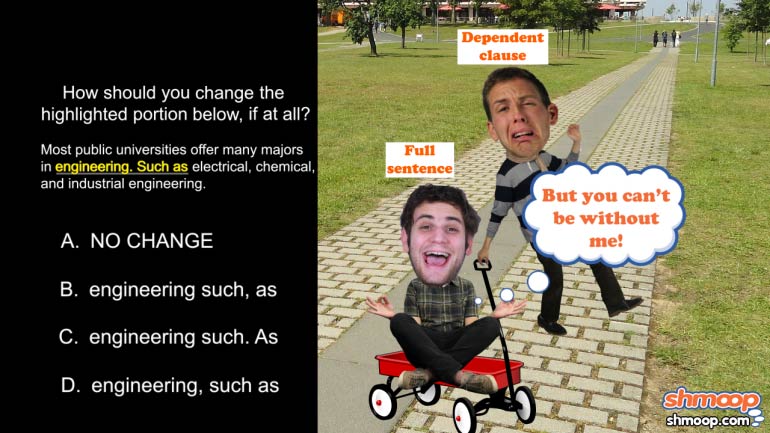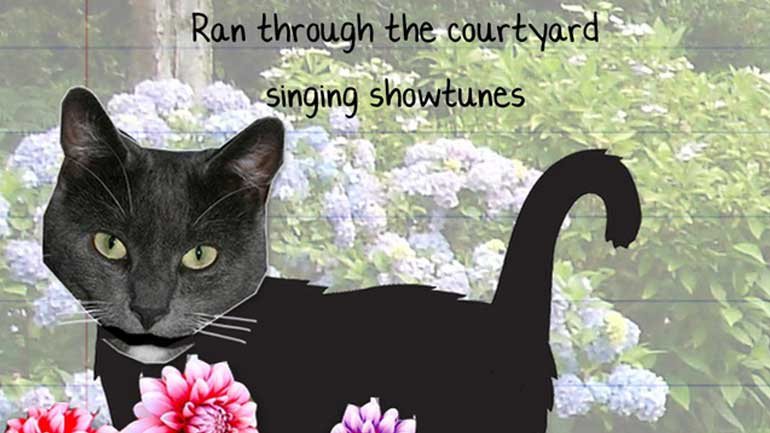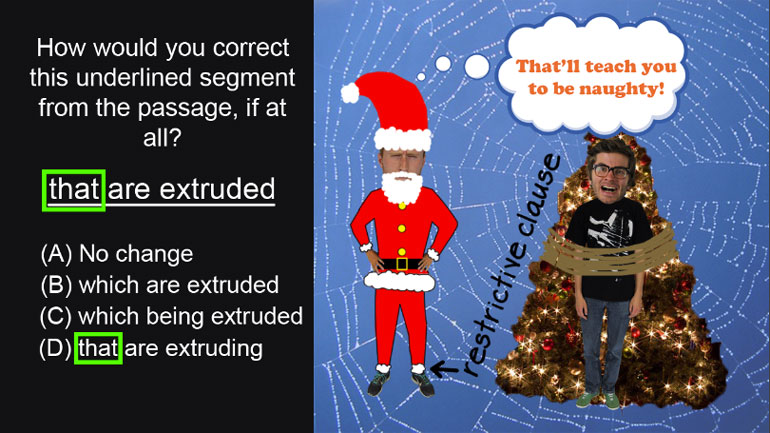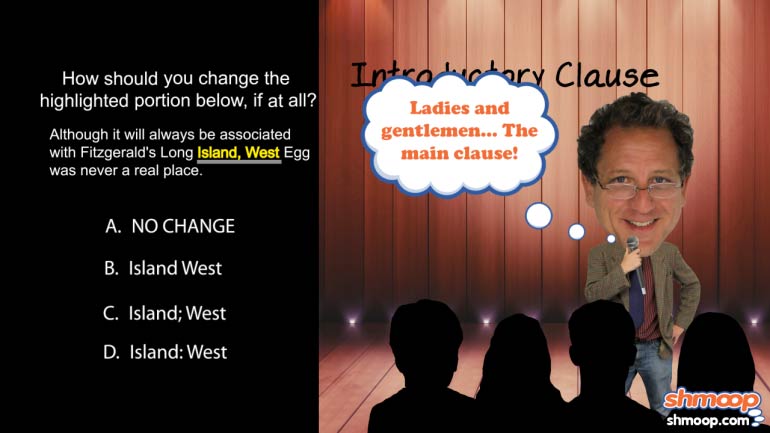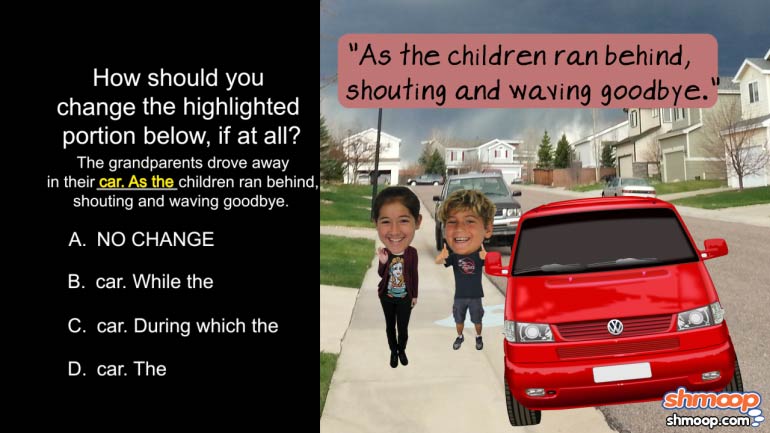ShmoopTube
Where Monty Python meets your 10th grade teacher.
Search Thousands of Shmoop Videos
Sentence Structure Videos 41 videos
Select the best version of the italicized part of the sentence. If you think the original sentence is best, choose the first answer.Besides being e...
Select the best version of the italicized part of the sentence. If you think the original sentence is best, choose the first answer.Every time I go...
Select the best version of the italicized part of the sentence. If you think the original sentence is best, choose the first answer.It is difficult...
ACT English 2.3 Sentence Structure 253 Views
Share It!
Description:
ACT English: Sentence Structure Drill 2, Problem 3. What is the best way to punctuate this passage?
Transcript
- 00:03
Here's your Shmoop du jour, brought to you by run-on sentences.
- 00:07
They really just don't know when to stop.
- 00:10
How should you change the underlined portion below, if at all?
- 00:13
The university's plan for expansion included a new arts building and a new library, if
- 00:20
the funding drive is successful, there will be enough money for both.
Full Transcript
- 00:31
Let's just kick (A) to the curb right from the get-go. There's no way this big mess of
- 00:34
a sentence doesn't need any changes.
- 00:35
No worries, though. We'll find a way to clean it up.
- 00:38
"The university's plan for expansion included a new arts building and a new library" is
- 00:44
one complete independent clause, while "if the funding drive is successful, there will
- 00:50
be enough money for both" is another.
- 00:54
By connecting these two independent clauses with nothing but a comma, the original sentence
- 00:58
becomes one big nasty comma splice.
- 01:01
If possible, choice (B) makes an even bigger mess out of the situation by not putting any
- 01:06
punctuation at all between our two independent clauses.
- 01:09
We know that two independent clauses that are jammed together without a conjunction
- 01:12
or the proper punctuation are what's known as a run-on or fused sentence.
- 01:17
(D) does get one thing right by using a semicolon to connect our independent clauses.
- 01:23
This is one of the semicolon's main jobs, and here it does that job well. At times,
- 01:27
it can be a great way to fix a run-on sentence.
- 01:30
However, choice (D) lets us down by allowing a comma to run wild.
- 01:35
"If the funding drive is successful" is an introductory phrase, which sets the stage
- 01:41
for the main clause to come.
- 01:43
In this case, the phrase starts with the preposition "if," so we know that this particular introductory
- 01:49
phrase is what's known as a prepositional phrase.
- 01:53
Anyway, whenever a sentence starts with an introductory phrase, it's important to set
- 01:57
it apart with a comma to help with clarity.
- 02:00
Choice (D), however, places the comma directly after the preposition "if," rather than after
- 02:05
the phrase as a whole.
- 02:07
This, of course, is incorrect, so while it impressed us with its semicolon, (D) gets
- 02:12
disqualified for its sloppy comma use.
- 02:15
Choice (C) solves our original comma splice issue correctly by separating the two independent
- 02:20
clauses with a period.
- 02:21
Now they're each free to be themselves, without the other all up in its business all the time.
- 02:26
Like Brad and Jennifer or Ben and J-lo, some couples just aren't meant
- 02:30
to be together...
Related Videos
ACT English: Punctuation Drill 2, Problem 2. Where should the semi-colon be placed?
ACT English: Punctuation Drill 3, Problem 1. How should this sentence be changed so that it is grammatically correct?
ACT English: Punctuation Drill 3, Problem 2. How should we properly hyphenate the words in this sentence?
ACT English: Punctuation Drill 3, Problem 4. Which choice best formats this list of items?
ACT English: Punctuation Drill 2, Problem 1. Which choice of punctuation best completes the sentence?
